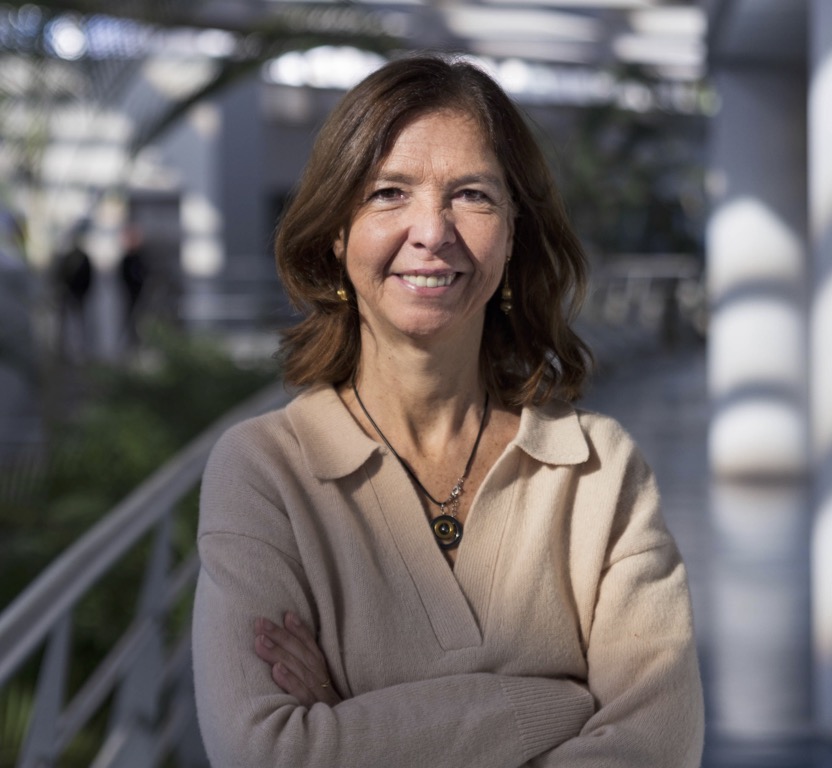Ana Paiva is a Full Professor of Artificial Intelligence in the Department of Computer Science and Engineering at IST (“Instituto Superior Técnico”), University of Lisbon, and a senior researcher at INESC-ID. She is also a Fellow at the Radcliffe Institute for Advanced Study, Harvard University. She holds a PhD in Artificial Intelligence in Education from Lancaster University, UK (1992–1996), and previously earned her MSc and BSc in Electrical and Computer Engineering from Instituto Superior Técnico.
With more than three decades dedicated to research in Artificial Intelligence, her work focuses on the creation of autonomous agents and robots capable of interacting and collaborating with humans. In 2000, she founded GAIPS (Group on AI for People and Society), one of the internationally leading research groups in Social Artificial Intelligence, which she led for twenty years. She has published more than 300 papers in top conferences and journals, including IJCAI, AAAI, AAMAS, CHI, AIJ, JAAMAS, among others.
Her work has received numerous scientific awards, such as the Young Engineer Innovation Award from the Portuguese Order of Engineers, early in her career, and the AAAI Blue Sky Paper Award in 2018 for her pioneering work in prosocial computing. She is also a Fellow of AAAI (Association for the Advancement of Artificial Intelligence), EurAI (European Association for Artificial Intelligence), and ELLIS (European Laboratory for Learning and Intelligent Systems).
She has delivered more than one hundred keynote and invited talks at high-impact scientific events. Among them, her keynote at IJCAI 2022 entitled “Engineering sociality and collaboration in AI systems”, alongside keynotes across diverse domains including AI, neuroscience, social sciences, robotics, education, data science, and autonomous systems.
In 2022, she was internationally recognized by the organization “Women in Robotics” as one of the 50 Women to Know about in Robotics, and was named a Woman in Robotics Engineering and Science (WiRES) at the 35th Anniversary Forum of IROS’22, highlighting her contributions to Social Artificial Intelligence and Social Robotics.
Between 2022 and 2024, she served as a WASP Guest Professor under the Wallenberg AI, Autonomous Systems and Software Program (WASP) in Sweden, collaborating with multiple Swedish research teams in Social AI, Robotics, and Autonomous Agents.
Throughout her career, she has served on numerous scientific and advisory boards, including the World Economic Forum’s Global Agenda Council on Artificial Intelligence and Robotics, the board of EurAI – European Association for Artificial Intelligence, the advisory board of Science Europe, and the Advisory Board of the Hybrid Intelligence Centre in the Netherlands.
In 2024, she served as the Secretary of State for Science in the XXIV Portuguese Government, overseeing national science and technology policies.
